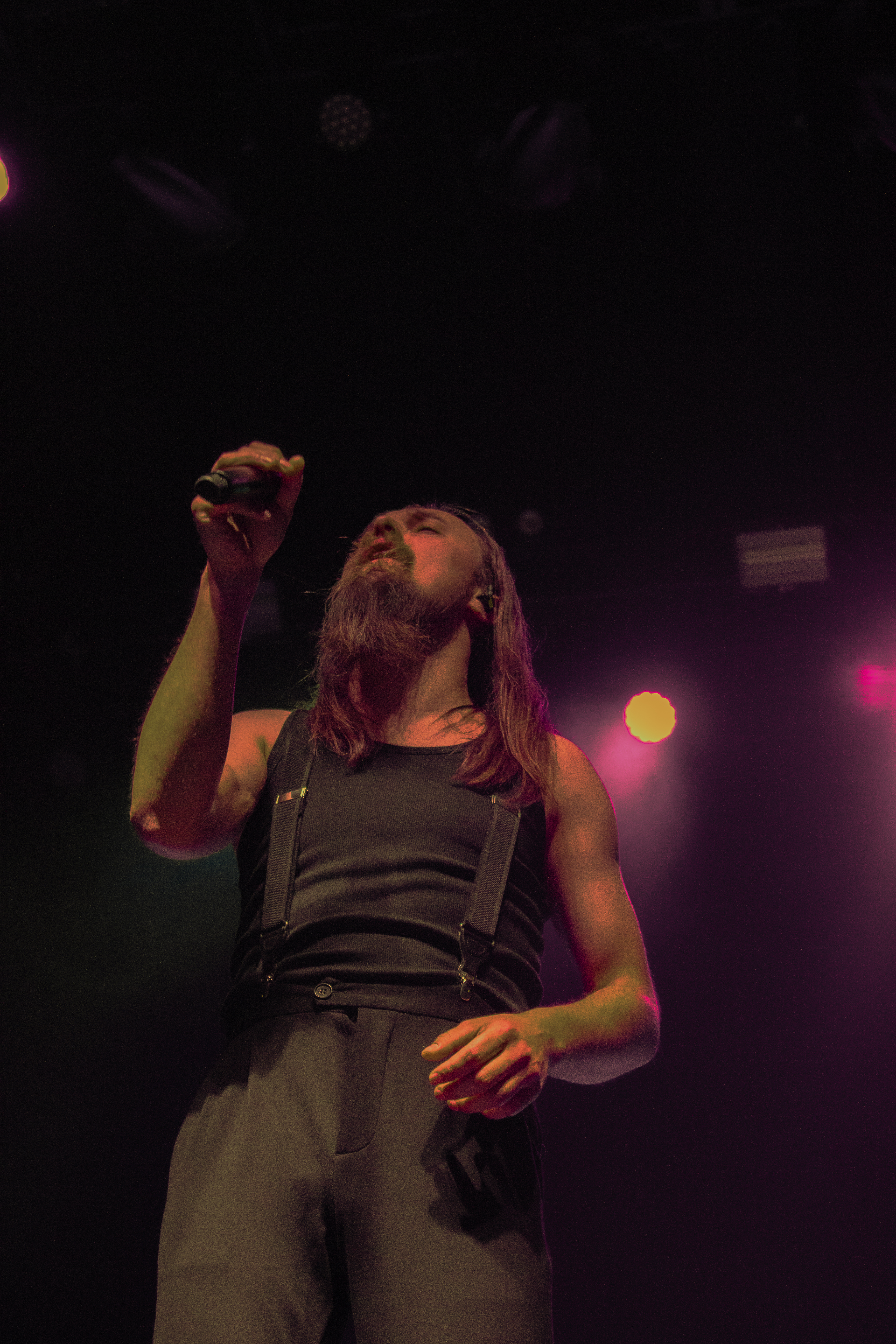Molchat Doma @ Roadrunner 2/15
Photos by Owen Butler
Review by Jacob Risch
Since Molchat Doma’s debut album in 2017 “С крыш наших домов” (From the Roofs of Our Houses), the Belarussian band struck a chord with post-punk, new-wave, and goth fans around the world. Now residing in Los Angeles, their newest album “Belaya Polosa” builds on their already impressive discography of 3 studio albums and various EPs which are a treasure trove of nostalgic, danceable, synth-pop. As I entered Roadrunner on a snowy night in February, I was excited to hear how their music translated to a live setting.
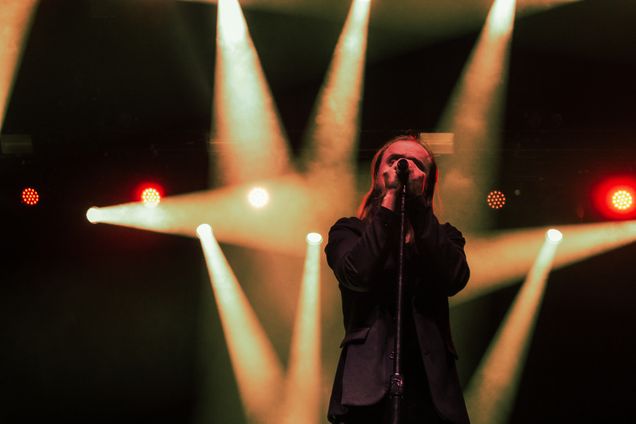
Opening for Molchat Doma was the LA-based post-punk/EBM band Sextile. Although their lyrics were often unintelligible, their beats were intense and they certainly warmed the crowd up for Molchat Doma. They played a fusion of industrial music, EDM, and punk that was both new to the ears yet familiar enough to dance to. Sextile’s stage presence was engaging and fun. They talked to the crowd, danced, and for their last song, to the delight of the crowd, waved around a flag with the words “Abortion Rights Now!” Despite their often harsh-sounding music, I enjoyed their performance and the energy they brought to Roadrunner.
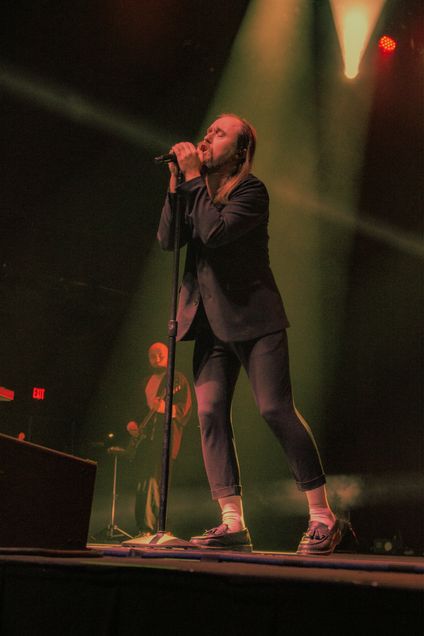
Molchat Doma came on around 9 p.m. The band was met by a crowd containing a diverse array of goths, punks, music lovers, and overall alternative people. It was an ocean of black leather, hair dye, and piercings. Although there was never a proper mosh pit, the crowd was energetic and dancey and there were multiple crowd surfers during the course of the show.
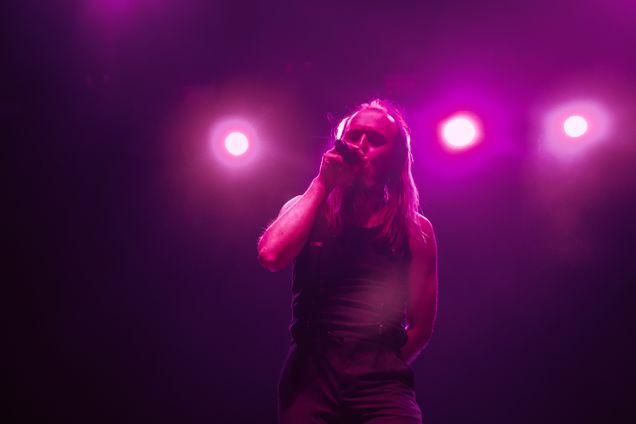
Molchat Doma is small but mighty. Consisting of Egor Shkutko on vocals, Roman Komogortsev on guitar, synthesizers, and drum machine, and Pavel Kozlov on bass guitar and synthesizers, the three band members produced more than enough sounds and textures to fill Roadrunner to the brim. Komogortsev’s guitar lines were angular and propulsive but never too dissonant. His chords slashed through songs. His tone was washed in reverb and chorus, it maintained a hard-to-find balance of cutting through the mix while still sounding dense and multilayered. His playing is clearly influenced by post-punk giants like Bernard Sumner of Joy Division and Reeves Gabrels of The Cure while maintaining a distinctly Eastern European sound. His synthesizer and drum machine playing shouldn’t be overlooked either.
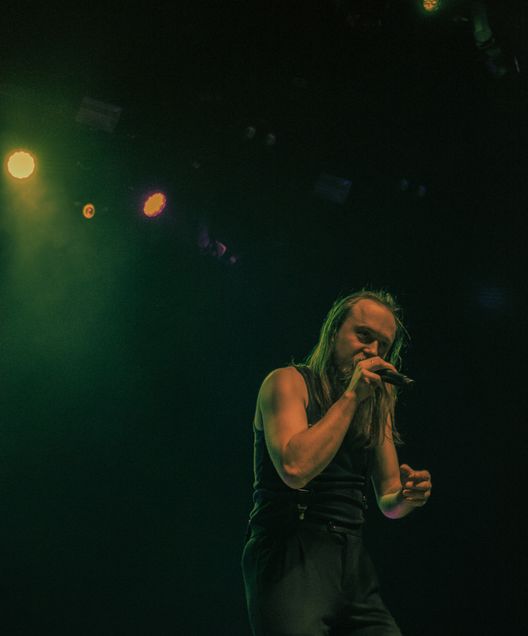
Komogortsev and Kozlov often took turns switching instruments. One would play bass guitar or guitar while the other would fill out the sound of the band with synthesizers. Kozlov’s bass work reminded me a lot of Peter Hook of Joy Division. His playing isn’t constrained by the bass guitar’s traditional role of a rhythmic, low-end, felt-rather-than-heard instrument. His riffs were prominent and extremely catchy. The band’s last song “Судно” (translating to “bedpan”) had a bass riff that immediately energized the crowd. Koslov and Komogortsev were both dressed in loose, long-sleeved white shirts and brown trousers, sharply contrasting Shkutko’s all-black fit of a tank top and leather pants.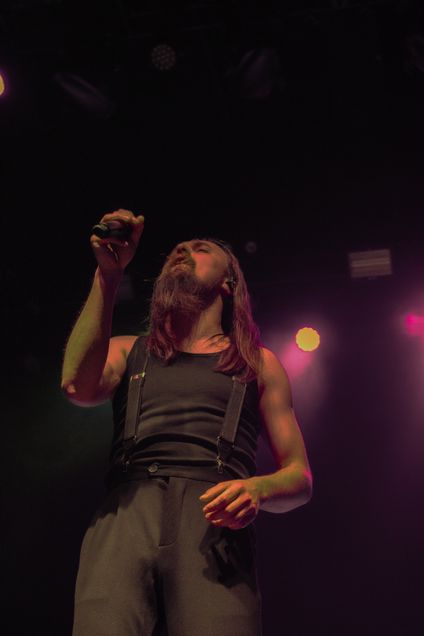
Shkutko’s vocals perfectly complement Komogortsev and Kozlov’s playing. From the sound system at Roadrunner, he sounded spectral and haunting. Combined with a wash of reverb and some delay, his voice reminded me of a dreary PA system, maybe in some dilapidated Eastern European airport. His vocals were distant yet engaging, putting on a dramatic show while keeping the audience at arm’s length. Multiple times during the show I was struck by Shkutko’s stage presence. Somehow, he’s restrained enough for this band’s detached style of music while also singing and gesticulating like he’s the star tenor in a Russian opera. His facial expressions were dramatic and often ghastly; like a classic tragedy mask.
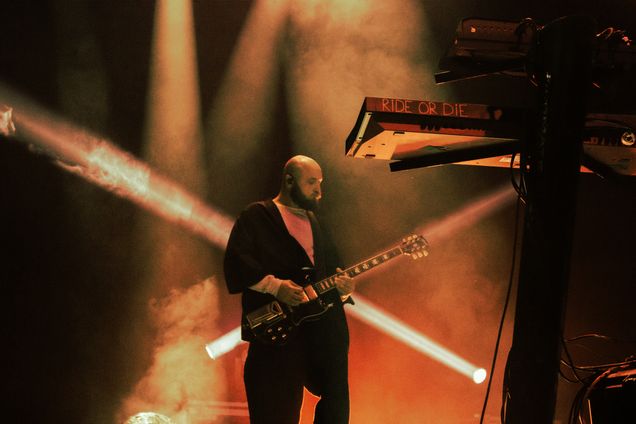
Shkutko (as well as Komogortsev and Kozlov) rarely interacted with the audience throughout the show. Except for a “Hello Boston!” at the beginning of the show and a quick “Спасибо” (thank you) at the end of each song, Molchat Doma moved quickly and efficiently through their polished setlist, leaving little room for excess fanfare or crowd interaction. Although the lighting was dramatic and the band was dancing, they clearly wanted the music to be the focus of the night.
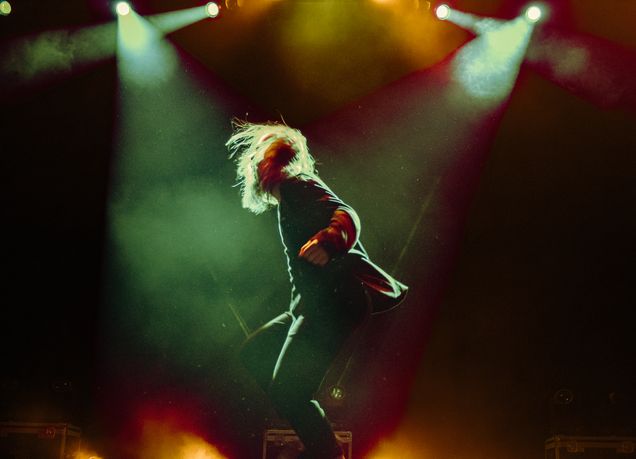
Molchat Doma’s lyrics match my overall impression of their performance. It’s easy to overlook them as an English language listener but, once translated, they are deeply evocative vignettes of an often dreary life in post-Soviet Belarus. Their lyrics touch on everything from social isolation to drinking, and unrequited love to life in drab brutalist apartment buildings. If you’re expecting joyful songs about the finer things in life, Molchat Doma is not the band for you. I love this band because of their moodiness. They capture that feeling of being angry at the world and the only thing to do is dance. They’re as comfy as they are alienating, as raucous as they are introspective. Their songs perfectly suited a February night in Boston. As the night came to an end, I exited Roadrunner humming a synth line from “На Дне” (At the Bottom) and braced myself against the bitter cold and snow.
